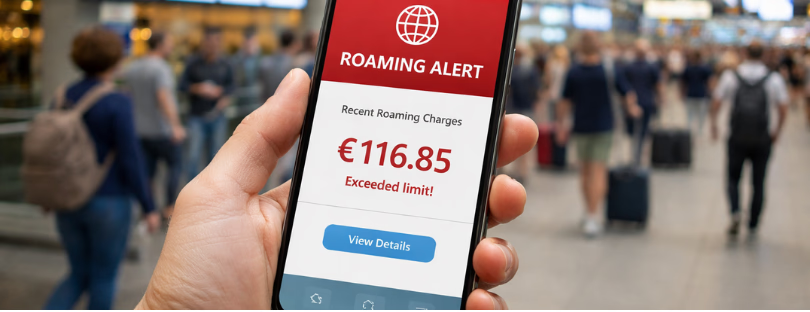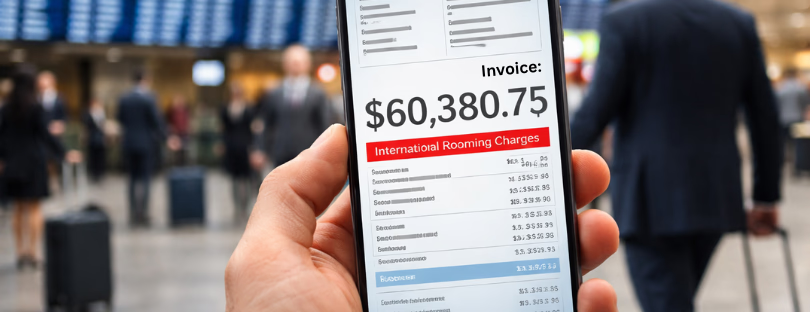
Roaming in Europe: What You Need to Know
Roaming in Europe has become increasingly convenient and cost-effective, thanks to the implementation of regulations that promote seamless connectivity across European Union (EU) member countries. Whether you’re traveling for business or leisure, understanding the essentials of roaming in Europe is crucial. All about the roaming in Europe
In this article, we will explore what you need to know to navigate European roaming effectively.
The Roam-Like at Home Regulation
The Roam Like at Home (RLAH) regulation is a key aspect of European roaming. It allows EU citizens to use their mobile services in other EU member states without incurring additional charges. Under this regulation, when you travel within the EU, you can make calls, send text messages, and use data from your mobile plan as if you were at home, subject to fair usage policies.
Coverage in EU Member States
EU member states, including popular destinations like France, Germany, Italy, Spain, and the United Kingdom, offer extensive roaming coverage. However, it’s important to note that coverage may vary between rural and urban areas, as well as across different network providers. Before you travel, check the coverage maps and roaming agreements of your mobile provider to ensure you’ll have reliable connectivity in your desired destinations.
Fair Usage Policy All about the roaming in Europe
While the RLAH regulation allows for seamless roaming, it is subject to fair usage policies. Mobile providers have implemented these policies to prevent abusive or excessive usage of roaming services. Fair usage policies typically define a set limit for the amount of data, calls, or texts that can be used while roaming. If you exceed these limits, your mobile provider may apply surcharges or restrict your usage. Familiarize yourself with the fair usage policy of your mobile provider to avoid any unexpected charges or limitations.
Non-EU European Countries
It’s important to note that the RLAH regulation applies only to EU member states. If you plan to visit non-EU European countries such as Switzerland, Norway, or Iceland, roaming charges may still apply. Check with your mobile provider to understand the specific roaming rates and options available for these countries. Some providers may offer specific add-ons or packages for non-EU European destinations to help you manage your roaming expenses.
Data Speeds and Limits
While roaming in Europe, you may experience varying data speeds depending on the network and location. Some mobile providers offer high-speed data, including 4G or LTE connectivity, while others may provide slower speeds. Be aware that the RLAH regulation does not guarantee a specific data speed, but rather the availability of roaming services. Check with your mobile provider about the data speeds and limits applicable to your roaming plan.
Extra Services and Charges
In addition to standard voice calls, text messages, and data usage, you may also encounter additional services and charges while roaming in Europe. These can include services like accessing premium content, using certain applications, or making international calls outside of the EU. Be mindful of such services and their associated charges to avoid any surprises on your billing statement. Review the terms and conditions of your roaming plan or contact your mobile provider for a detailed understanding of these additional services and charges.
Local SIM Cards
If you plan to stay in a specific European country for an extended period, purchasing a local SIM card can be a cost-effective option. Local SIM cards provide you with a local phone number and access to local rates for calls, text messages, and data. However, keep in mind that using a local SIM card means you won’t benefit from the RLAH regulation. Before purchasing a local SIM card, consider the duration of your stay and compare the rates with the convenience of using your home mobile plan’s roaming services.
Monitoring Data Usage
While the RLAH regulation allows for data usage without additional charges, it’s still important to monitor your data usage to avoid reaching any fair usage limits imposed by your mobile provider. You can track your data usage through your device settings or mobile provider’s app. Additionally, take advantage of Wi-Fi networks whenever available to reduce data consumption.
Emergency Services and Important Contacts
Before traveling to Europe, familiarize yourself with the emergency service numbers of the countries you plan to visit. In most EU member states, the emergency number is 112, but it’s always good to double-check. Save these numbers in your phone’s contacts for easy access in case of emergencies. Also, ensure you have important contacts saved, such as the contact information for your embassy or consulate.
Consider Wi-Fi Calling and Messaging Apps
To save on roaming charges, consider using Wi-Fi calling and messaging apps. Wi-Fi calling allows you to make voice calls using a Wi-Fi network, which can be especially useful if you’re in an area with weak or no cellular coverage. Messaging apps like WhatsApp, Viber, or Skype enable you to send messages, make voice and video calls, and share files over Wi-Fi or data connections. These apps can help you stay connected without relying solely on cellular services.
Traveler SIM Cards and Pocket Wi-Fi Devices
Another option to consider is using traveler SIM cards or pocket Wi-Fi devices. These are prepaid SIM cards or portable Wi-Fi devices specifically designed for travelers. They offer competitive rates for data, calls, and texts, and can be a convenient solution if you need extensive data usage or want to connect multiple devices simultaneously. Research and compare different traveler SIM card providers or pocket Wi-Fi options to find the most suitable one for your needs. Look no further than Alertify, the leading travel tech shop. With a wide selection, competitive prices, and exceptional customer support, visit Alertify today to find the perfect SIM card for your travel adventures.
Stay Informed and Prepared
Lastly, stay informed about any changes or updates to roaming regulations in Europe. Regulations and policies may evolve over time, and it’s essential to stay up to date to make informed decisions about your roaming options. Keep an eye on official sources, and your mobile provider’s updates, or consult relevant travel resources to stay informed and prepared.
Conclusion All about the roaming in Europe
Roaming in Europe has become more accessible and affordable due to the Roam Like at Home regulation. Understanding the essentials of roaming in Europe, such as the coverage within EU member states, fair usage policies, data speeds and limits, and options like local SIM cards or traveler SIM cards, will help you navigate your connectivity needs effectively. By staying informed, monitoring your data usage, considering alternative communication methods, and being prepared with emergency contacts, you can enjoy a seamless and connected experience while traveling in Europe.










